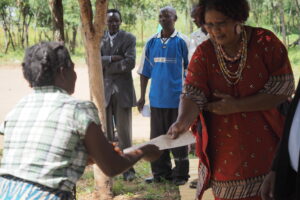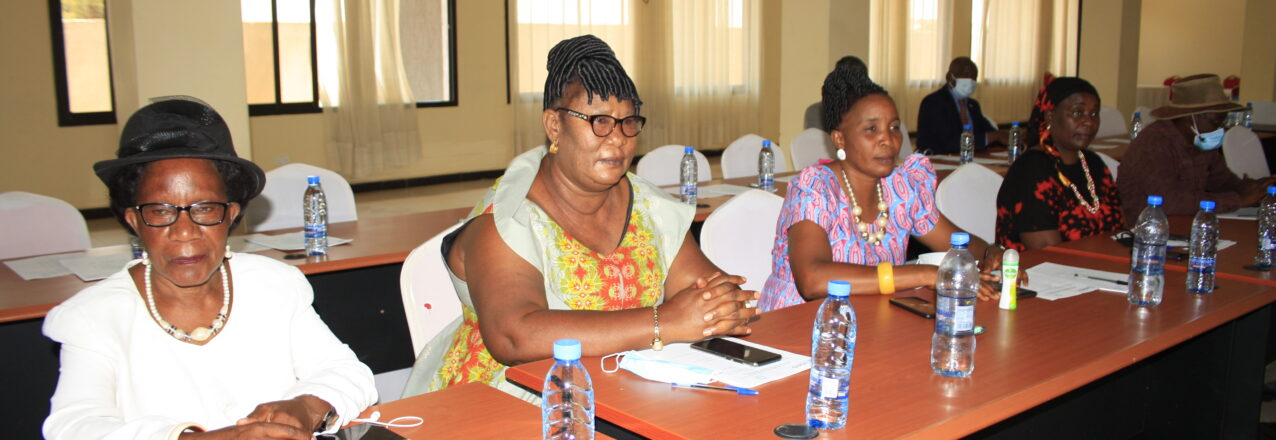Gender equality guidelines will motivate Zambia’s traditional leaders to champion women’s rights in land and resource management
Women in Zambia, like in most countries, have less access to land, productive resources, and opportunities than men. Due to discriminatory gender norms that view men as heads of household, men typically have more decision making power at both the household and community level. This leads women to have less of a voice in decisions about land use, income earning opportunities, household finances, and community resource distribution.
Traditional leaders hold political, social, and cultural power in the country, and as such, can play a key role in shifting harmful gender norms and advancing gender equality. Under Zambia’s 2014 National Gender Policy, traditional leaders are required to promote gender equality in their chiefdoms. In response to this mandate, the House of Chiefs, an elected body of chiefs that provides coordination and operational support to traditional leaders throughout the country, have proven they are willing to promote gender equality advocacy campaigns, taking a proactive role in rolling out the Campaign Against Child Marriages and Gender-Based Violence and the National Action Plan on Climate Change. However, when it comes to practical action, they lack the tools to turn these national advocacy strategies into real local level reforms.
Gender Guidelines
In November, the House of Chiefs launched the Gender Guidelines for Traditional Leaders in the Management of Natural Resources in their Chiefdoms. The guidelines are a set of practices for strengthening women’s land and resource rights within Zambia’s 288 chiefdoms. They provide traditional leaders with tools to encourage gender equality in policies and activities at the local level. The guidelines are the result of a multi-year partnership between the United States Agency for International Development’s (USAID) Integrated Land and Resource Governance (ILRG) program and the Zambia House of Chiefs to promote women’s land rights, address harmful gender norms, and increase women’s participation in natural resource management.
Other activities under this partnership include the Chalimbana University Diploma Course on Traditional Leadership, a masterclass specifically designed for Chiefs and traditional leaders, which includes gender equality and social inclusion in its curriculum and is now in its second year. USAID is also working with indunas, or the local advisors to chiefs, in a year-long dialogue focused on identifying and changing gender norms that hinder women’s land rights.
The guidelines focus on strengthening gender-responsiveness in areas and practices where chiefs have legal and social power such as land, forestry, wildlife, water, agriculture, climate change, child marriage, and education. In the area of women’s access and ownership of lands, the guidelines promote the participation of women in land committees, and they ban practices that amount to land-grabs from widows, including forcing widows to marry a husband’s relative in order to access land. In forest management, the guidelines bring women into local community forest management groups and provide access to extension services. Across the guidelines, chiefs are encouraged to challenge discriminatory gender norms and champion women leaders. The guidelines also provide tools to track progress against common goals and assess how these leaders are contributing to broader national gender equality initiatives.

Implementation
Across Zambia, traditional leaders have a great deal of power and influence. They have jurisdiction over vast swaths of customary land and resources and control everything from land use and access to inheritance rights. In their chiefdoms, they hold decision making power, mediate disputes, and act as the liaison with government officials. As authorities on cultural practices, traditional leaders can play a key role as champions of gender equality at the local level where discriminatory gender norms drastically restrict women’s access to and control over land and resources. These guidelines are a crucial step, as national laws that protect women’s land rights and inheritance protections do not extend to customary land.
The guidelines will first be piloted in two areas over the next year to help assess how the House of Chiefs can support their implementation across Zambia’s 288 chiefdoms. Launched by the Chair of the House of Chiefs, Senior Chief Luembe, and the Minister of Local Government and Rural Development, Gary Nkombo, the guidelines provide an example of how chiefs can create local and culturally appropriate practices that respond to government policy. Minister Nkombo highlighted the importance of chiefs in influencing customs, particularly in rural areas.
“These guidelines take us a step further in achieving our goal as a Ministry to operationalize the gender policy and achieve the developmental goals of our nation,” Minister Nkombo said at the event.
“There is no doubt that the measures proposed in these guidelines, if well implemented, will greatly benefit our chiefdoms and help us live our mandate as gender champions,” explains His Royal Highness Chief Luembe, Chairperson, House of Chiefs.
This blog was originally published on USAID's LandLinks.

